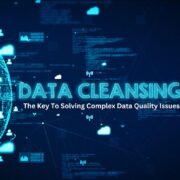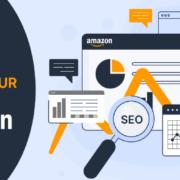In today’s data-centric world, businesses continuously explore methods to unlock greater value from their data. Traditional data analytics has served well, but data’s growing volume, variety, and velocity demand new strategies to uncover deeper insights and enhance decision-making. This is where generative AI comes in—a game-changing technology that’s transforming data analytics by delivering intelligent insights that were once beyond reach.
Partnering with a generative AI development company can further accelerate this transformation. These companies specialize in developing advanced AI models that enhance data analytics and enable businesses to explore innovative solutions, generate synthetic data, and automate the discovery of insights that drive smarter decisions and better outcomes across industries.
What is Generative AI?
Generative AI encompasses a class of artificial intelligence models designed to create new data that mirrors the patterns and characteristics of the data they were trained on. Unlike traditional AI models, which are typically designed to make predictions or classifications based on existing data, generative AI models can create entirely new data points. This feature unlocks a wide array of opportunities to elevate data analytics, including the creation of synthetic data and the automation of insight discovery.
Read other blog: 10 Best Generative AI Development Companies in 2024
The Evolution of Data Analytics
Data analytics has evolved from basic descriptive methods, which focused on summarizing historical data, to more advanced predictive analytics, where statistical models and machine learning forecast future trends. Today, the field is moving towards prescriptive and cognitive analytics, driven by the need to process massive data in real time and uncover deeper insights. Top generative AI companies are now pushing these boundaries even further by enabling businesses to not only analyze but also generate new data, transforming how they extract value from their information.
From Descriptive to Predictive Analytics
The journey of data analytics has evolved from basic descriptive analytics, which involves summarizing historical data to understand what happened in the past, to predictive analytics, which uses statistical models and machine learning to forecast future outcomes. While these methods have been effective, they are often limited by the quality and quantity of the data available.
The Limitations of Traditional Data Analytics
Traditional data analytics relies heavily on structured data and predefined models, which can restrict the scope of insights that can be derived. Additionally, as datasets grow larger and more complex, it becomes increasingly difficult to manually sift through the data to identify patterns or anomalies. This is where generative AI comes into play, offering a new way to approach data analysis.
How Generative AI is Transforming Data Analytics
Enhancing Data Quality and Availability
One of the most significant challenges in data analytics is the availability of high-quality data. Generative AI can help overcome this by creating synthetic data that mimics real-world data. This synthetic data can be used to augment existing datasets, filling in gaps where data is missing or generating new scenarios for analysis. By improving the quality and diversity of the data, generative AI enables more robust and reliable analytics.
Automating Insight Discovery
Generative AI models, including Generative Adversarial Networks (GANs) and Variational Autoencoders (VAEs), can be used to automate the discovery of insights within large datasets. These models can generate new hypotheses, identify hidden patterns, and suggest correlations that might not be immediately apparent to human analysts. This automation not only accelerates the analysis process but also allows for the exploration of more complex and nuanced insights.
Enabling Real-Time Analytics
As businesses increasingly require real-time insights to stay competitive, generative AI is playing a crucial role in enabling real-time data analytics. By continuously learning from new data, generative AI models can provide up-to-date predictions and recommendations. This feature holds significant value, especially in sectors such as finance, healthcare, and retail, where timely valuable insights can greatly influence the decision-making process.
Personalizing Data Insights
Generative AI allows for the personalization of data insights by tailoring the analysis to specific user needs. For instance, in marketing, generative AI can analyze customer data to generate personalized recommendations for each individual. In healthcare, it can help create personalized treatment plans by analyzing patient data and predicting outcomes based on similar cases. This level of personalization ensures that the insights generated are relevant and actionable.
Real-World Applications of Generative AI in Data Analytics
Finance: Enhancing Risk Management and Fraud Detection
In the financial sector, generative AI is being utilized to improve fraud detection and strengthen risk management. By generating synthetic data that simulates various market conditions, financial institutions can test the resilience of their models against different scenarios. Additionally, generative AI can identify unusual patterns in transaction data that might indicate fraudulent activity, enabling more effective detection and prevention.
Healthcare: Advancing Precision Medicine
Generative AI is transforming healthcare by enabling more precise and personalized treatment options. For example, AI models can generate synthetic patient data to test the effectiveness of new drugs or treatment protocols. Additionally, by analyzing large volumes of medical data, generative AI can identify patterns that may lead to discoveries in disease prevention and treatment.
Retail: Optimizing Supply Chain and Customer Experience
In the retail sector, generative AI is being used to optimize supply chain management and enhance customer experience. By analyzing historical sales data, AI models can generate forecasts that help retailers manage inventory more effectively. Furthermore, generative AI can personalize the shopping experience by analyzing customer behavior and generating tailored product recommendations.
Marketing: Improving Customer Targeting and Campaign Effectiveness
Generative AI is also making waves in marketing by improving customer targeting and campaign effectiveness. By analyzing customer data, generative AI can create detailed customer profiles that help marketers design more effective campaigns. AI-generated content can also be utilized to tailor marketing messages, enhancing their relevance and making them more engaging for the intended audience.
Challenges and Considerations
Data Privacy and Security
Although generative AI provides many advantages, it also prompts significant data privacy and security concerns. While useful, synthetic data generation must be carefully managed to ensure that it does not inadvertently expose sensitive information. Businesses must implement robust data governance policies to protect against potential risks.
Model Interpretability and Transparency
A further issue with generative AI is the difficulty in interpreting these models. As their complexity increases, grasping how they generate specific insights becomes challenging. Ensuring transparency in AI models is crucial, especially in industries like finance and healthcare, where decisions based on AI-generated insights can have significant consequences.
Integration with Existing Systems
Integrating generative AI with existing data analytics systems can be challenging. Businesses need to ensure that AI models are compatible with their current infrastructure and that they can be seamlessly incorporated into existing workflows. This necessitates meticulous planning and coordination among data scientists, IT departments, and business stakeholders.
The Future of Data Analytics with Generative AI
The future of data analytics is undoubtedly intertwined with the advancements in generative AI. As artificial intelligence models advance, they will increasingly excel at providing insightful analysis, driving innovation, and creating new business possibilities. In the coming years, we can expect to see generative AI play an increasingly central role in data analytics, enabling businesses to harness the full potential of their data.
Conclusion
Generative AI is transforming data analytics by unlocking new levels of insight and innovation. From enhancing data quality to automating insight discovery and enabling real-time analytics, this technology is revolutionizing the way businesses approach data analysis. While challenges such as data privacy and model interpretability remain, the potential benefits of generative AI far outweigh the risks. As companies increasingly adopt this technology, they will become more adept at managing the intricacies of today’s data environment and achieving impactful results.














Comments